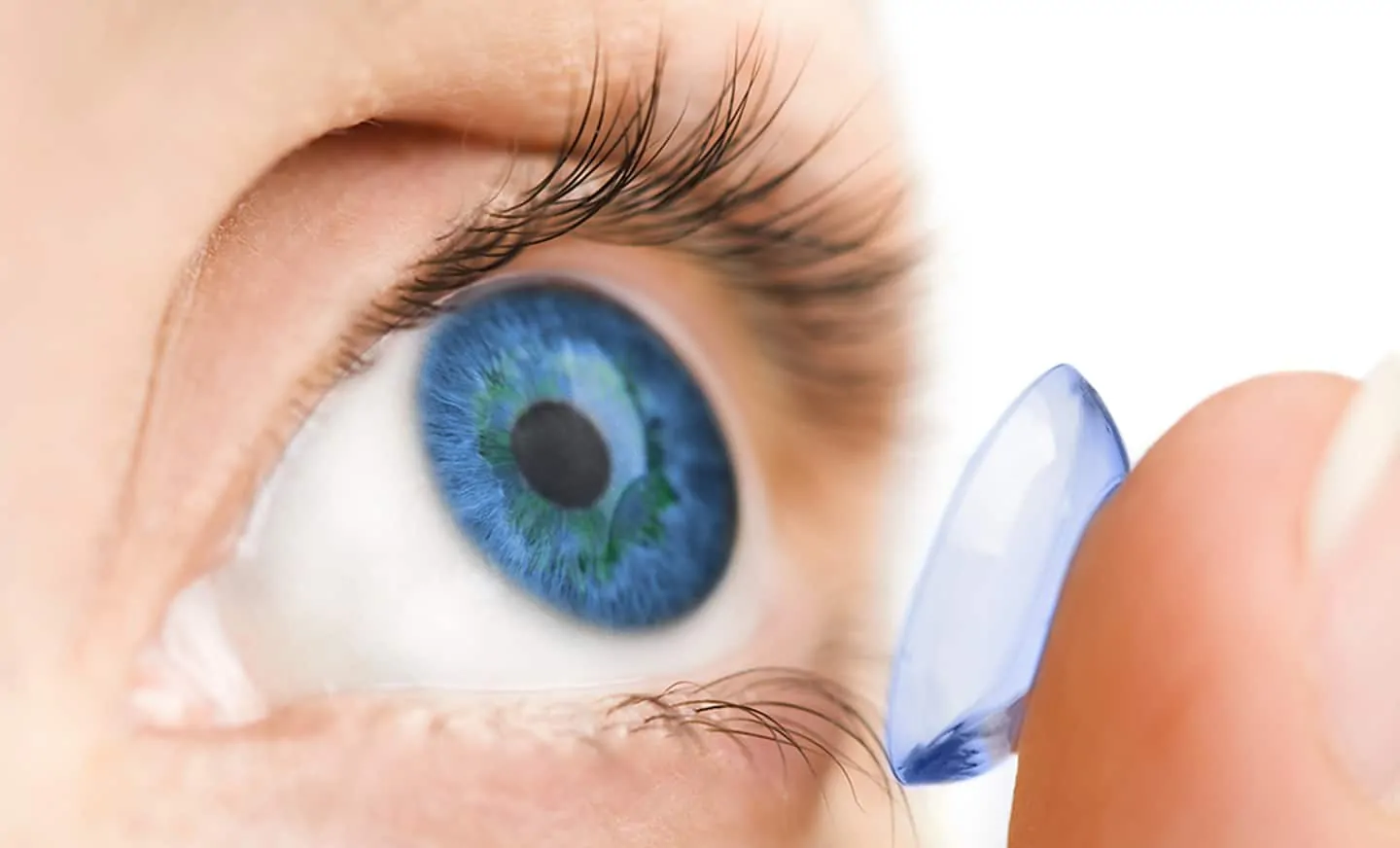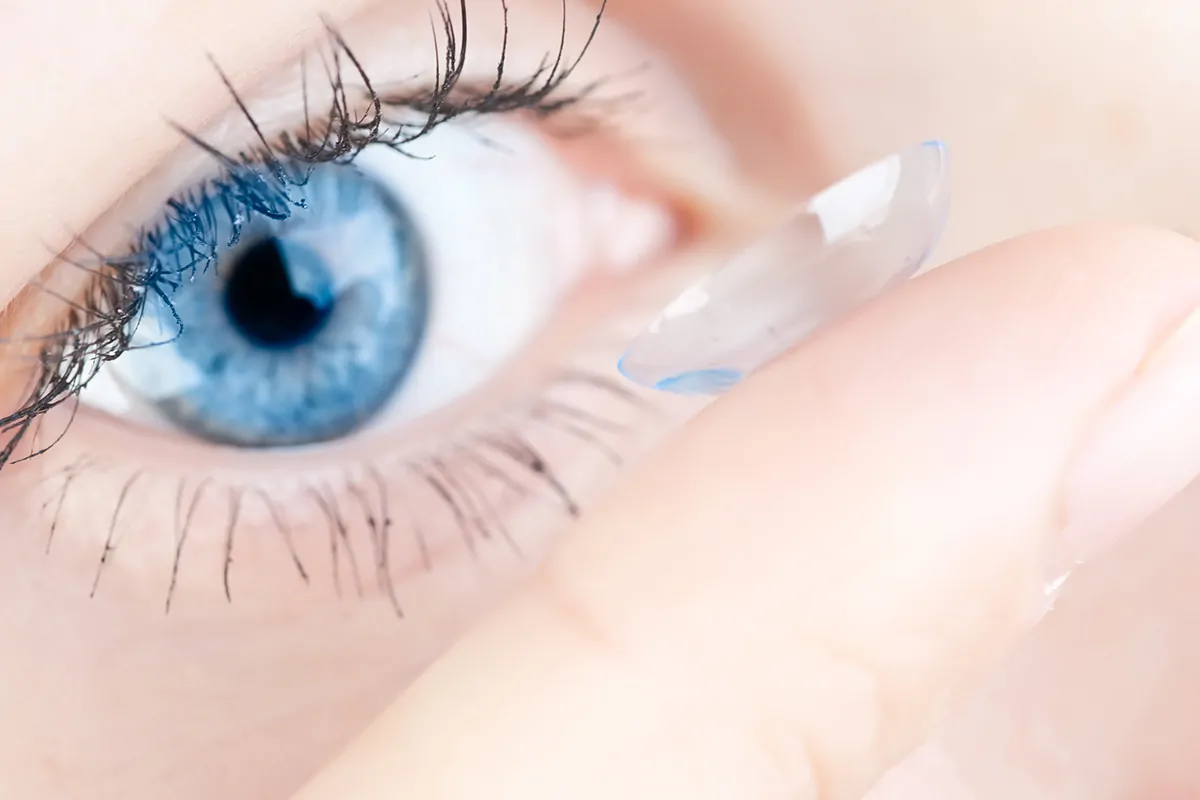Wearing contact lenses offers many benefits, such as convenience, a natural appearance, and enhanced peripheral vision. However, improper use or care can lead to common problems that affect comfort and eye health. Understanding these issues and knowing how to prevent them is crucial for a safe and pleasant experience with contact lenses. Here’s a look at some common contact lens problems and how to avoid them.
1. Dry Eyes
Dry eyes are a common issue for contact lens wearers, often resulting in discomfort, redness, and a gritty sensation. This condition can be caused by prolonged use of lenses, exposure to dry environments, or not blinking enough while wearing them.
How to Avoid Dry Eyes:
- Use Lubricating Drops: Artificial tears or rewetting drops specifically designed for contact lenses can help keep your eyes moist.
- Choose the Right Lenses: Consider lenses made from materials that retain moisture better, such as silicone hydrogel lenses.
- Limit Lens Wear Time: Avoid wearing your lenses for longer than recommended, and give your eyes a break by switching to glasses occasionally.
- Stay Hydrated: Drinking plenty of water can help maintain moisture levels in your eyes.
2. Eye Infections
Eye infections can occur if bacteria, fungi, or other pathogens contaminate your contact lenses. This can lead to serious conditions like conjunctivitis (pink eye), keratitis, or even corneal ulcers.
How to Avoid Eye Infections:
- Maintain Proper Hygiene: Always wash your hands before handling your lenses and avoid touching your eyes with unwashed hands.
- Clean and Disinfect Lenses Properly: Use the recommended cleaning solutions and never use tap water to rinse your lenses or case.
- Replace Your Lens Case Regularly: Change your lens case every three months and keep it clean and dry between uses.
- Avoid Wearing Lenses When Sick: If you have an eye infection or systemic illness, avoid wearing lenses to prevent contamination.
3. Lens Discomfort
Lens discomfort can occur for various reasons, including improper lens fit, dryness, protein deposits, or sensitivity to lens materials or solutions.
How to Avoid Lens Discomfort:
- Ensure Proper Fit: Visit your eye care professional regularly to ensure your lenses fit correctly and your prescription is up to date.
- Follow Replacement Schedules: Adhere to the recommended replacement schedule for your lenses to prevent discomfort from protein deposits or wear.
- Use Appropriate Solutions: If you experience irritation, you might need a different type of cleaning solution. Consult your eye care provider for recommendations.
- Take Breaks: Give your eyes regular breaks from contact lenses, especially if you experience discomfort.
4. Red or Irritated Eyes
Red or irritated eyes can be a sign of various issues, such as lens dryness, allergies, poor hygiene, or overuse of contact lenses.
How to Avoid Red or Irritated Eyes:
- Avoid Overwearing Lenses: Stick to the prescribed wear time and avoid wearing lenses while sleeping unless specifically approved by your eye care professional.
- Manage Allergies: If you have allergies, consider using daily disposable lenses to minimize allergen buildup.
- Avoid Environmental Irritants: Protect your eyes from dust, smoke, and other irritants by wearing protective eyewear when necessary.
5. Blurry Vision
Blurry vision while wearing contact lenses can be caused by dirty lenses, incorrect lens prescription, or the lenses drying out on the eyes.
How to Avoid Blurry Vision:
- Keep Lenses Clean: Ensure your lenses are clean and free from debris. Use the appropriate cleaning solutions and follow a proper cleaning routine.
- Check Your Prescription: Make sure your contact lens prescription is current and accurate. Regular eye exams can help ensure you have the correct prescription.
- Stay Hydrated: Use rewetting drops if your lenses become dry, and avoid environments that can exacerbate dryness, such as air-conditioned rooms or windy conditions.
6. Allergic Reactions
Some people experience allergic reactions to contact lens materials or cleaning solutions, resulting in itching, redness, and discomfort.
How to Avoid Allergic Reactions:
- Switch to Hypoallergenic Products: Use hypoallergenic solutions and lenses designed for sensitive eyes.
- Try Daily Disposable Lenses: These lenses reduce exposure to potential allergens since you start with a fresh pair every day.
- Consult Your Eye Care Provider: If you suspect an allergic reaction, speak with your eye care professional to identify the cause and find a suitable alternative.
7. Lens Handling and Care Mistakes
Improper handling and care of contact lenses can lead to discomfort and eye health issues.
How to Avoid Handling and Care Mistakes:
- Follow Instructions: Always follow the manufacturer’s and your eye care professional’s instructions for lens care and wear.
- Avoid Using Old Solutions: Never use expired or outdated contact lens solutions, as their efficacy can diminish over time.
- Be Gentle: Handle lenses with clean, dry hands and avoid using nails or sharp objects that could damage the lenses.
Conclusion
Contact lenses are a convenient and effective way to correct vision, but they require proper care and attention to prevent common problems. By following good hygiene practices, adhering to recommended wear schedules, and consulting with your eye care professional, you can enjoy the benefits of contact lenses while minimizing the risk of discomfort or complications.
Always be attentive to how your eyes feel and respond to wearing lenses. If you experience persistent discomfort, redness, or changes in vision, seek professional advice promptly. With the right care and precautions, contact lenses can provide a comfortable and healthy vision correction experience.



